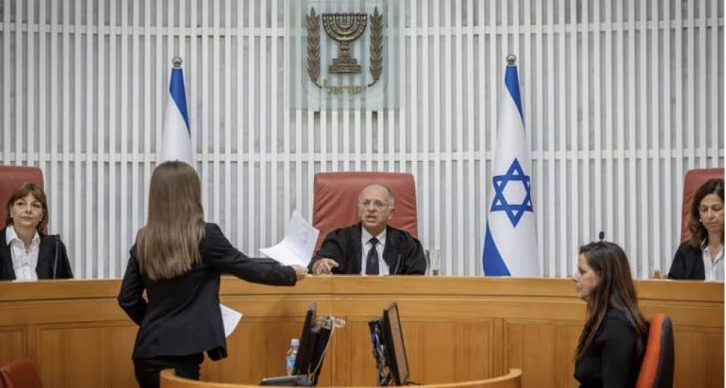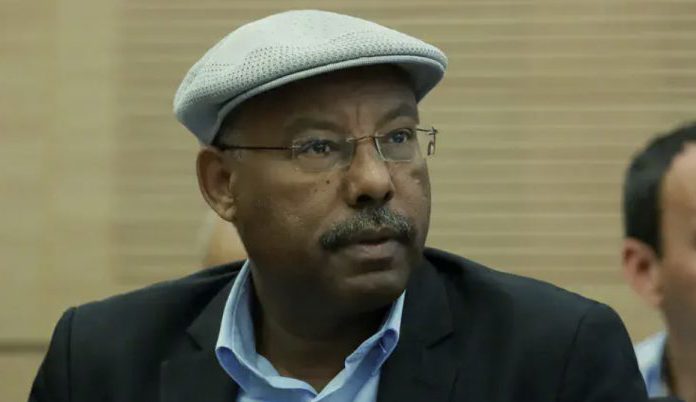Supreme Court rejects genetic parents’ request for additional hearing on custody of IVF mixup baby Sophia, closing the case and ensuring she remains with her birth family.
The Israeli Supreme Court rejected earlier this week a request by the genetic parents of Sophia, an IVF mixup baby, to hold an additional hearing on her case.
The decision represents the final step in ensuring that Sophia, now nearly three years old, remain with her birth parents, and closes the door to future discussion of her case.
In his decision, Supreme Court Chief Justice Yitzhak Amit explained, “After reviewing the verdict and the petitioners’ claims, I found no grounds to order a further hearing.” He also noted that all the justices who participated in the ruling agreed that genetic ties to a newborn do not confer automatic legal parenthood.
Although he acknowledged that the ruling will serve as a legal precedent in future cases, Amit stressed that this factor alone is not enough to justify re-examining the ruling, since the case has already been examined by three courts.
Noting that the legal battle over Sophia has lasted over a year and a half, constituting the “majority of her life so far”, Amit added, “the sides’ claims have been examined and re-examined, and the various courts have not left a single stone unturned on the path to a ruling in the complex case.”
“The time has come to end the prolonged litigation between the sides and allow the parties to leave the past hurts behind, for the benefit of the child.” He also urged the sides to open “a new page, build trust, and create a good and beneficial relationship between the infant and the two couples who have parental claims to her, as well as between the couples themselves.”
Amit admitted that the court may find itself facing similar cases in the future, and urged lawmakers to clarify the legal definition of parenthood such that it will resolve future cases. At the same time, he expressed hope that future cases will not occur, calling on the healthcare system to take steps to prevent such mistakes.
“This case is based on a rare and unusual mistake in the IVF process, which occurred through no fault of either side,” he stressed. “None of them knew in real time that the embryos had been switched or agree to such a thing.”
Attorney Galit Kerner, who represents Sophia’s birth parents, responded: “We commend the court for its morally, legally, and ethically correct decision. May it be that after a time of war, there will be peace between the sides.”
The genetic parents called the ruling as “a heartbreaking decision which erases us, her biological parents and young sister, from Sophia’s life. Throughout the entire journey, we did everything we could to be able to look Sophia in the eyes and tell her that we truly did everything we could to fix the mistake, for the sake of her future and her life story. Sadly, it was not enough. To this day, despite the previous rulings, we have not yet been allowed to meet Sophia, and it seems that there is no real intention to allow us to be part of her life. We thank, from the depths of our hearts, those who supported us through this unsettling and unbearable journey and wish for better and quieter days for all of us. Our hearts and home will always remain open and loving for our daughter Sophia.”
Last month’s Supreme Court ruling, the first of its kind in Israel, marks an end to a saga which began in September 2022, when Sophia’s birth mother, who had undergone genetic testing after Sophia was found to have a heart defect, was informed that Sophia was not genetically related to either herself or her partner. Sophia was born in October 2022, and was declared to legally be her parents’ child soon afterwards.
In November 2024, a single Family Court judge ordered that Sophia, who has been in and out of the hospital since birth, should be transferred to the custody of her genetic parents. Her birth parents appealed the decision; and in March, The Lod District Court overturned the lower court’s decision, declaring that the two-year-old should continue residing with them.
At the end of March, the Supreme Court heard the case, and closed the hearing with a proposal to both sides, which was not revealed to the public. The court gave the sides until after Passover to reach a decision, and when this failed issued their own ruling last month – a ruling which the genetic parents attempted to appeal; the appeal was rejected Sunday.





